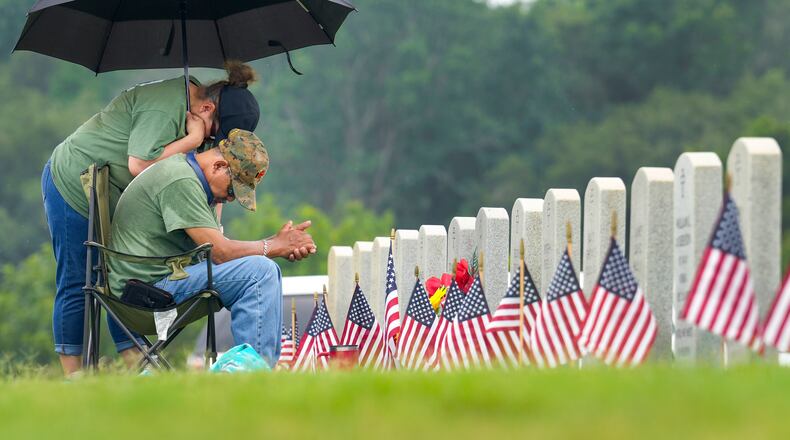Legislation the House adopted this week also expands access to free headstones and burial markers furnished by the VA.
The Honoring Our Heroes Act, led by Rep. Tim Kennedy, D-N.Y., sets up a pilot program that allows eligible family members to request free government-issued gravestones for veterans who died on or after Dec. 7, 1941, when America entered World War II, and are interred in private and local cemeteries.
The bill, which passed the House unanimously on a 413-0 vote, ensures that military service is honored consistently, regardless of when a veteran passed away, Kennedy said.
The legislation provides a free headstone, marker or medallion for veterans who died on or after Dec. 7, 1941, but before Nov. 1, 1990.
Kennedy said the bill would end a discrepancy in the law that prevented veterans who died during certain periods from being commemorated with government headstones.
Current law restricts the VA from providing the free markers for veterans who died before Nov. 1, 1990, unless the grave is unmarked.
Other bills that passed the House bring special focus to using new technology to bring more efficiency to processing thousands of veterans claims each year for disability compensation and other benefits.
The Modernizing All Veterans and Survivors Claims Processing Act is an ambitious bill for developing an AI system to assist processing disability claims, survivor benefits and pensions.
The new AI system would retrieve veterans’ information, compile evidence, guide decisions, share data between agencies and generate claims-related correspondence.
The VA backlog of claims for disability and pensions tops 145,000, according to an online agency dashboard. In August, it took the VA on average 95 days to complete a disability claim.
The bill also directs VA Secretary Doug Collins to develop a blueprint for using AI that would be submitted to the House and Senate Veterans’ Affairs committees.
Rep. David Valadao, R-Calif., who led the legislation, described claims processing as outdated, leading to backlogs and burdening veterans with unnecessary paperwork.
Another bill that seeks to reform the VA through better technology is the VA Hospital Inventory Management System Authorization Act.
Led by Rep. Jen Kiggans, R-Va., the bill would modernize VA’s supply chain with a cloud-based inventory management system.
“Too often, outdated systems and poor logistics have led to wasted taxpayer dollars, missing medical equipment and delays in care for our veterans,” said Kiggans, a former Navy helicopter pilot and nurse practitioner.
Kiggans’ bill would test-run a cloud-based inventory management system at one VA medical center as a precursor to deploying it across the VA.
Cloud-based systems use remote computer servers to store information, provide real-time inventory data and inform decision-making through analytics, according to supporters.
The Veterans Readiness and Employment Program Integrity Act would require VA to collect more evidence to measure outcomes in employment programs.
The bill requires VA to track the number of participants who land employment through its job training program as well as their annual wages.
VA’s Veterans Readiness and Employment Program helps veterans with training and education but lacks performance metrics to gauge success, said Rep. Juan Ciscomani, R-Ariz., who is helping lead the bill.
About the Author
